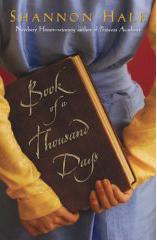
The Sweet Potato Queens’ Field Guide to Men: Every Man I Love Is Either Married, Gay, or Dead, by Jill Conner Browne
Well, this book is very irreverent and, how shall I say this? Not very respectful toward men. But oh my goodness, it is funny!
As the author says herownself: “The reader should not infer any degree of fairness intended by these descriptions; they are used purely for the sake of conversation and, we hope, for laughs. It is not in my job description to be fair to men or to even seem fair to them. It’s a little late in the history of the entire world to introduce an element of fairness, and beyond even my considerable powers to bring it to bear, anyway.”
She goes on to describe, with great hilarity, many types of men you’ll find out there: The Bud Spud, the Dud Spud, the Crud Spud, the Fuddy-Dud Spud, the Pud Spud, the Blood Spud (also known as the Man Who May Need Killing), the Scud Spud, and finally every woman’s dream, the Spud Stud.
And so it goes. I should mention that Jill Conner Browne does not confine herself to mocking men, but also gives plenty of hearty laughter toward those of us who love them — and the things we’ll go through to try to attract them.
I’m afraid, in my present Being-Divorced state, the chapter I found most utterly hilarious was “Surviving the Wang Wars” about all the delightful ways women have gotten revenge on men who didn’t treat them as well as they deserved.
“Alas and alack, love does occasionally derail, and when it does, it usually wipes out entire neighborhoods, releases a massive cloud of terminally toxic gas, and the cleanup can take years. And while it may be true that it is not always their fault when things go awry, it is no less true that we certainly believe that it’s always their fault and we want 100 percent of all the blame to be laid not so much at their feet but rather on top of their bodies, making it impossible for them to breathe and continue living in any real sense of the word. What would really make us just oh so happy is to be allowed to murder them ten different times in ten different ways and then finally feed the remains to the wood chipper. But hardly anybody ever really gets to do that. And so, barring that ultimate satisfaction, a number of Queens have demonstrated characteristic Queenly Resourcefulness in their dealings with errant mates in ways that are not likely to land the perpetrator in the slammer, and that’s a Good Thing. I share them with you as food for thought — fodder for your consideration as alternative strategies should you find yourself currently in possession of a man who is just beggin’ to be killed.”
Now, I should mention that the Sweet Potato Queens do not advocate criminal activity. Jill Conner Browne says, “Even in Louisiana they will sometimes put you in jail if you kill one. We’ve stated repeatedly that we are unequivocally against killin’ ’em, even when they practically beg for it by their every word and deed. If you do, you will miss quite a few St. Paddy’s parades in Jackson while running from the law, and you’ll be a Yam on the Lam.”
if you’re feeling tempted to commit violence, The Sweet Potato Queens will get you laughing so hard about it, you won’t need to any longer.
With lots of silly but all too true insights, I think the uplifting message of the book is summarized in this paragraph:
“Throughout this book, I’ve been carrying on about men and finding them and getting them and keeping them and deciding whether or not to kill them, and if so, how, and so on. And that’s all funny and mostly true and all that, but the real truth is you are enough — just the way you are, just who you are. You are a complete entity, a whole person, right there in the skin you’re in. You don’t need to have a guy to be happy. Admit it: You have more fun with a gang of girlfriends than you’ve had on the absolute best date of your entire life. If somebody comes along who treats you right and makes you happy and you can do the same for him, well, that’s just dandy. But I’m telling you, the only way that I know to get and keep a happy, healthy relationship is first to create a happy and healthy life for yourself without one. This is your life to live.”
Preach it, Sister!
Buy from Amazon.com
Find this review on the main site at:
www.sonderbooks.com/Nonfiction/spq_field_guide_to_men.html






 The Canterbury Papers
The Canterbury Papers
